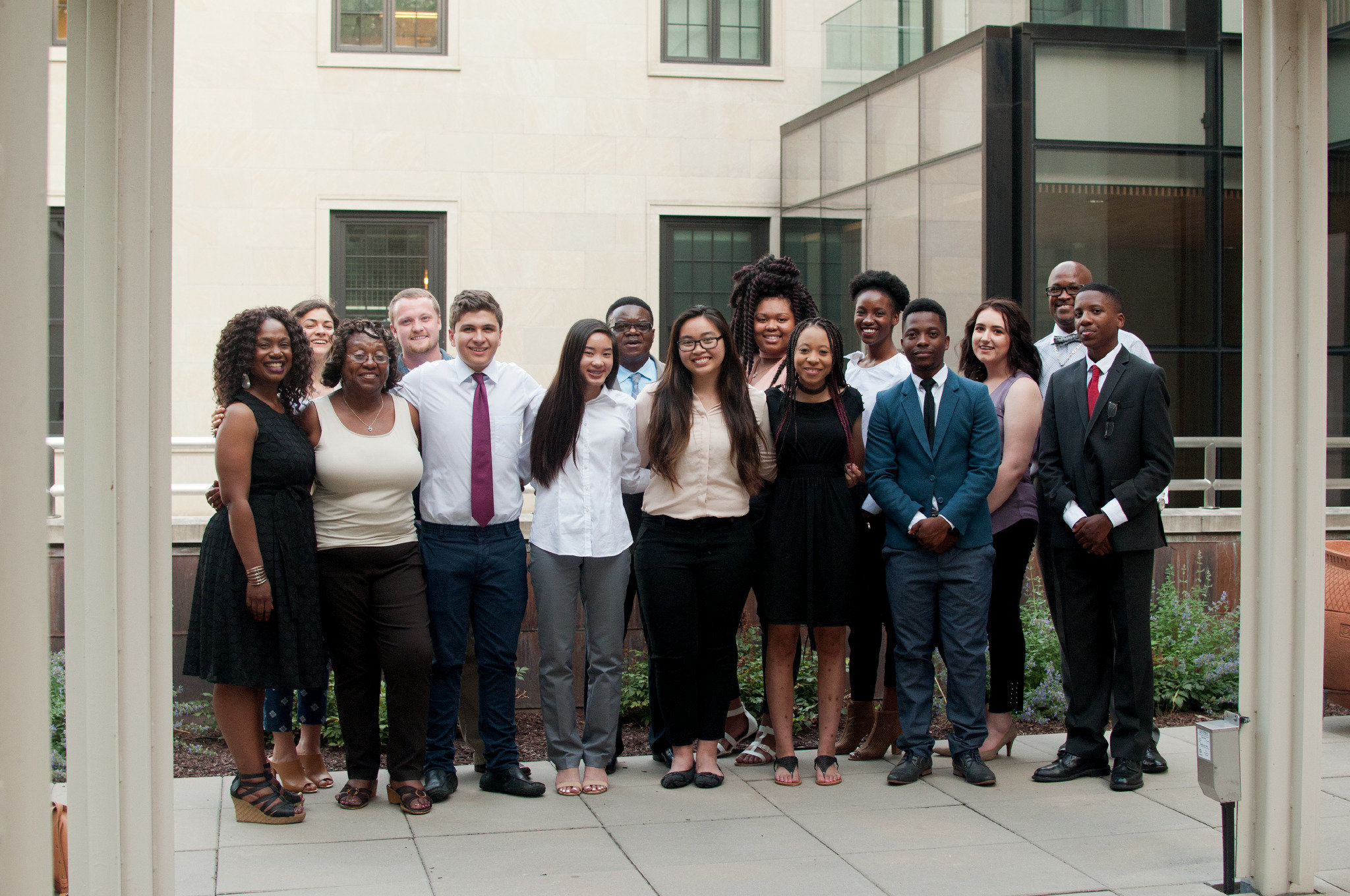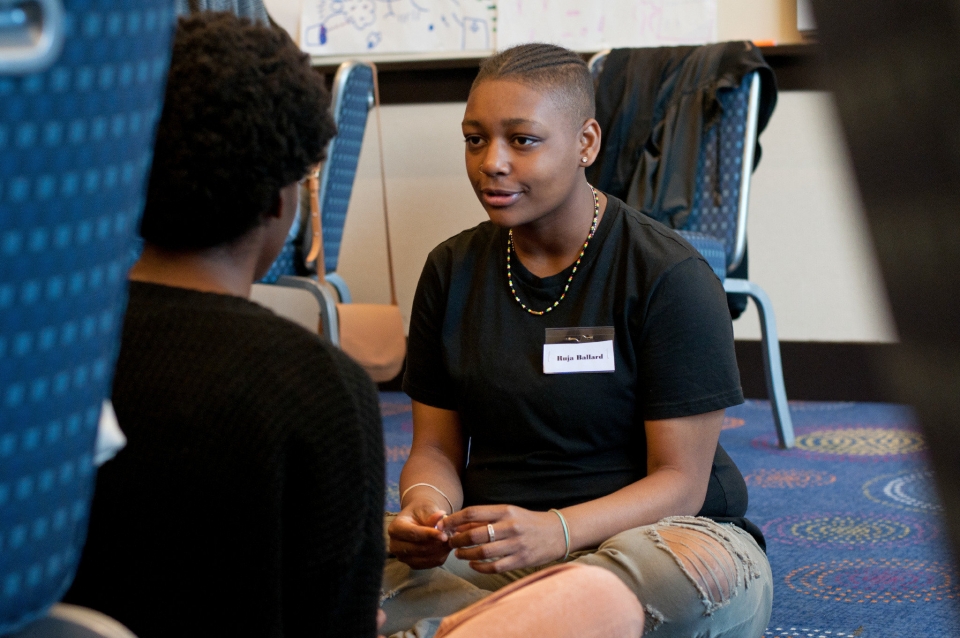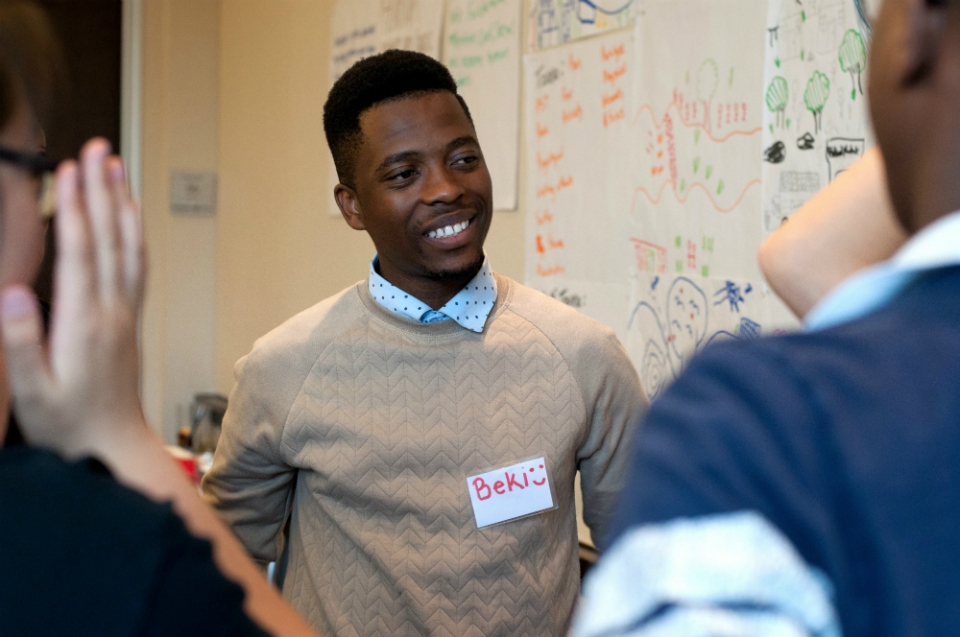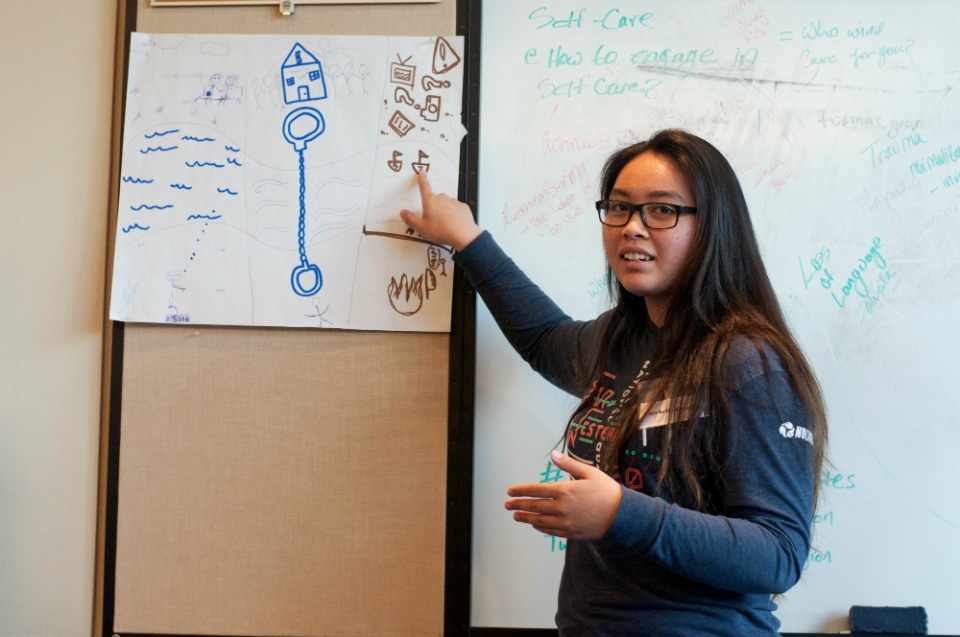
Participants and facilitators of AFSC's Human Rights Summit in Washington, D.C. Bryan Vana / AFSC
Young leaders from around the world share their experiences.
By Cristina Rosa Tono
Last month, 13 youth leaders from the U.S. and around the world took part in AFSC’s fifth annual Human Rights Summit in Washington, D.C. The summit was organized by Jean-Louis Peta Ikambana, AFSC director of Peace and Economic Justice, and led by program graduates Alex Garrison and Jodie Geddes.
Over five days, these high school and college students learned about human rights, and how to effectively advocate before their elected officials to bring about meaningful social change and lasting peace. Participants joined us from California, South Africa, Costa Rica, West Virginia, Pennsylvania, and Florida.
This is the first year the Human Rights Summit included international participants. Instead of visiting their local representatives, several youth had the opportunity to visit the Inter-American Commission for Human Rights to present their issues. Here's what they had to say about their experiences in the nation's capital.
Sebastian Jimenez, Costa Rica

I am concerned with the pineapple companies in the northern region and southern coast of Costa Rica. The companies go into indigenous and farming communities to purchase their land and grow pineapple. This is dangerous for the environment because the crop is contaminated with agrochemicals. In Costa Rica, we have the highest average of agrochemical usage on the planet. We use approximately 18.2 kg of agrochemicals [per hectare], almost nine times more than the United States.
The workers are constantly having their rights violated. The minimum salary is almost never respected. Many also suffer from illness due to exposure to harsh chemicals, and the use of a transgenic seed distances them from the sacred qualities of farming.
This week I visited the Inter-American Commission for Human Rights and learned about the process required for local issues like this to be considered on an international level. I learned that there should first be a local initiative for change and then if there are issues you can appeal to an international body like the Organization of American States for support.
Thanks to my experiences during the summit, I now know what steps I should take to help these farmers. When I return to Costa Rica I will appeal to the Women’s National Network because they are the ones that move these communities. I will tell them about my experiences in Washington, D.C. and together we will decide what to do next.
Ruja Ballard, Philadelphia

Most of my advocating goes to equality in the LGBTQ community. I know so many people are silenced because of whom they love and who they choose to be. I want to show kids how powerful they are and the potential that they have. Being here makes me want to go and do it more. I know that I have this ability to change someone else’s life.
The Universal Declaration of Human Rights will help me to share my opinions and give my friends a platform to talk about issues not only in their private lives but also at school and how they get through it on a daily basis. Before this summit, I thought when you organize something you should be the person talking. I realized here that I don’t have to. I also learned that it is OK to take a break from a cause. You can know what your plan is, but it is important to know that you don’t have to do it right away.
I am currently going to school for psychology. I know I want to be an educator, but that I don’t need to be a teacher to do so. Hopefully, even if I am not with this organization, I want to do similar work bringing different cultures and people together in one room to solve issues.
Bekithemba Ntoni, South Africa

I am incumbent on myself to make a difference not only for my country, but also for the world. Any injustice committed concerns me as a human. Coming from a war-torn country that advocates for global peace and that advocates for other war torn countries, I feel strongly about advocating for the individual rights of others.
One of the key things that the AFSC has taught me is the art of organizing. When getting people together to advocate for a cause, it is important to do so from the standpoint of the individual, and to understand the issues they are facing.
I feel strongly about youth empowerment because they are the future. They are the individuals that are able to make a difference, they are the most affected from the past, and they are the ones that will rectify the future. They will be able to create a better world for all of us. I feel empowered by the AFSC to be a change agent and run with the baton.
Raychelle Castillo, San Francisco

Many people don’t feel safe in my community. In San Lorenzo there are many cultures, colors, and races, and I want them all to feel safe where they are. I came to the Human Right Summit hoping that Congress could help others to feel safe and not be scared to represent who they are.
My high school is divided into academies. I am part of the Future Academy where we learn about the Universal Declaration of Human Rights (UDHR) and apply it to the arts in any form of self-expression. We perform it for our academy at an event called the Town Hall. I think we should present our town hall to the whole school. I think everyone should learn about human rights so we can defend ourselves.
I enjoyed hearing international opinions at this summit. It makes me interested in learning of perspectives from people of different cultures. This will help me know better how I can help them feel safe.
Now that I know more people who are passionate about the UDHR, I am more motivated to share it with others. I want everyone to know about it because I think it is a blessing.
*Editor's note: These testimonies have been transcribed from video interviews conducted during summit. The language has been lightly edited and at times translated for the purpose of this blog without compromising content.
Cristina Rosa Tono is an intern with AFSC in Washington, D.C.